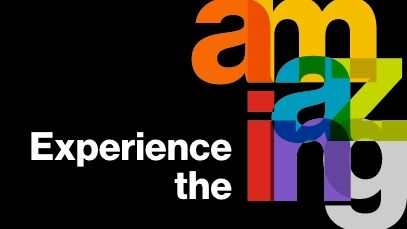Zrinka Friganovic Sain
Senior Lecturer
RIT Croatia
Select Scholarship
Invited Keynote/Presentation
Sain, Zrinka Friganovic, Milena Kuznin, and Rebecca Charry Roje. "Intercultural Competence in Business and Management Studies." International scientific conference: Međimurje Philology Conference 3. University of Zagreb, Faculty of Teacher Education. Čakovec, HR. 12 Mar. 2015. Conference Presentation.
Sain, Zrinka Friganovic. "How to Foster Discussion in a Foreign Language Classroom." 22nd Annual HUPE Conference. Croatian Association of Teachers of English. Opatija, HR. 25 Apr. 2014. Guest Lecture.
Sain, Zrinka Friganovic. "Female Migrant Writers: Between Here and There." International Conference CCCS/BNCCS Cultural Memory. Center for Culture and Cultural Studies. Skopje, FYRM. 5 Sep. 2013. Conference Presentation.
Published Conference Proceedings
Sain, Zrinka Friganovic. "Female Migrant Writers in Contemporary Italian Literature." Proceedings of the International Conference RijeÄki filoloÅ¡ki dani 9. Ed. Diana Stolac. Rijeka, HR: Filozofski fakultet Rijeka, 2014. Print.
Currently Teaching
ENGL-210
Literature and Cultural Studies
3 Credits
In this course, students will study literature, movements, and writers within their cultural contexts and in relation to modes of literary production and circulation. Students will hone their skills as attentive readers and will engage with literary analysis and cultural criticism. The class will incorporate various literary, cultural, and interdisciplinary theories--such as psychoanalytic theory, feminist and queer theories, critical race studies, and postcolonial theory. Using these theoretical frameworks in order to study texts, students will gain a strong foundation for analyzing the ways literary language functions and exploring the interrelations among literature, culture, and history. In doing so, they will engage issues involving culture, identity, language, ethics, race, gender, class, and globalism, among many others.
MLIT-201
Beginning Italian I
4 Credits
This is the first course in a two-course sequence. The sequence provides students without prior exposure to the language with a sound basis for learning Italian as it is used today in its spoken and written forms. The goal of the sequence is proficiency in communication skills with an emphasis on oral proficiency. The sequence also acquaints students with contemporary culture and life in the Italian-speaking countries. Students must take placement exam if this is their first RIT class in Italian and they have some prior study of Italian.
MLIT-202
Beginning Italian II
4 Credits
This is the second course in a two-course sequence. The sequence provides students without prior exposure to the language with a sound basis for learning Italian as it is used today in its spoken and written forms. The goal of the sequence is proficiency in communication skills with an emphasis on oral proficiency. The sequence also acquaints students with contemporary culture and life in the Italian-speaking countries.
MLIT-301
Intermediate Italian I
3 Credits
This is the first course of a two-course sequence at the intermediate level. The sequence provides students with the tools to increase their ability to function in Italian. Communicative activities, contemporary texts, and the study of vocabulary and grammar are used to expand all communication skills, especially oral proficiency. This sequence continues to address issues of contemporary Italian life and culture.
MLIT-302
Intermediate Italian II
3 Credits
This is the first course of a two-course sequence at the intermediate level. The sequence provides students with the tools to increase their ability to function in Italian. Communicative activities, contemporary texts, and the study of vocabulary and grammar are used to expand all communication skills, especially oral proficiency. This sequence continues to address issues of contemporary Italian life and culture.
UWRT-100
Critical Reading and Writing
3 Credits
Critical Reading and Writing is a one semester, three-credit course limited to 15 students per section. This course is designed to help students develop the literacy practices they will need to be successful in their First-Year Writing course. Students will read, understand, interpret, and synthesize a variety of texts. Assignments are designed to challenge students intellectually, culturally and rhetorically. Through inquiry-based assignment sequences, students will improve their writing by developing academic research and literacy practices that will be further strengthened in First-Year Writing. Particular attention will be given to critical reading, academic writing conventions, and revision. Small class size promotes frequent student-instructor and student-student interaction. The course also emphasizes the principles of intellectual property and academic integrity in academic writing. This course fulfills a Gen Ed free elective.
UWRT-150
FYW: Writing Seminar
3 Credits
Writing Seminar is a three-credit course limited to 19 students per section. The course is designed to develop first-year students’ proficiency in analytical and rhetorical reading and writing, and critical thinking. Students will read, understand, and interpret a variety of non-fiction texts representing different cultural perspectives and/or academic disciplines. These texts are designed to challenge students intellectually and to stimulate their writing for a variety of contexts and purposes. Through inquiry-based assignment sequences, students will develop academic research and literacy practices that will be further strengthened throughout their academic careers. Particular attention will be given to the writing process, including an emphasis on teacher-student conferencing, critical self-assessment, class discussion, peer review, formal and informal writing, research, and revision. Small class size promotes frequent student-instructor and student-student interaction. The course also emphasizes the principles of intellectual property and academic integrity for both current academic and future professional writing.







